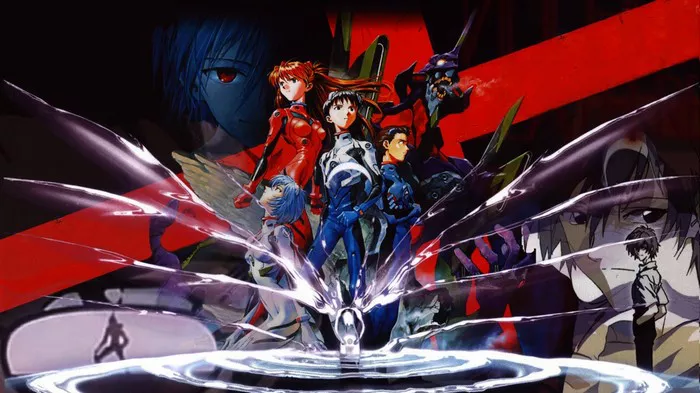Neon Genesis Evangelion,” one of the most iconic and influential anime series of all time, is renowned for its intricate narrative, deep psychological themes, and complex characters. Among its central protagonists is Asuka Langley Soryu, a talented and fiercely independent young pilot known for her brash demeanor and remarkable skill in combat. Throughout the series, Asuka’s mental health is a subject of intense scrutiny and speculation, with fans and scholars alike dissecting her behavior and motivations. In this article, we’ll delve into the complexities of Asuka’s mental health, exploring the factors that contribute to her struggles and the implications for her character arc.
Introduction to Asuka Langley Soryu
Asuka Langley Soryu is introduced early in “Neon Genesis Evangelion” as a prodigious Eva pilot recruited by the mysterious organization NERV to combat the existential threat posed by the enigmatic Angels. Confident, headstrong, and fiercely competitive, Asuka quickly establishes herself as a force to be reckoned with, both on the battlefield and in her interactions with her fellow pilots.
However, beneath Asuka’s brash exterior lies a deeply troubled psyche, scarred by past trauma and inner turmoil. As the series progresses, viewers are given glimpses into Asuka’s troubled past and the psychological demons that haunt her, shedding light on the complexities of her character and the challenges she faces.
The Nature of Asuka’s Mental Illness
To understand Asuka’s mental health, it’s essential to examine the various factors that contribute to her psychological struggles:
1. Abandonment and Rejection:
One of the central themes in Asuka’s character arc is her deep-seated fear of abandonment and rejection. Asuka’s troubled relationship with her mother, Kyoko Zeppelin Soryu, who suffered a mental breakdown and ultimately committed suicide, leaves a lasting impact on Asuka’s psyche. Her mother’s descent into madness and subsequent rejection of Asuka contribute to her feelings of inadequacy and abandonment.
2. Identity and Self-Worth:
Asuka’s sense of identity and self-worth is closely tied to her status as an Eva pilot and her perceived superiority over her peers. However, her reliance on external validation and her fear of failure lead to a fragile sense of self-esteem and a constant need to prove herself to others.
3. Isolation and Loneliness:
Despite her outward confidence and bravado, Asuka struggles with feelings of isolation and loneliness. Her abrasive personality and difficulty forming meaningful connections with others serve as barriers to genuine human connection, leaving her feeling isolated and alienated from those around her.
Symptoms and Behaviors
Throughout “Neon Genesis Evangelion,” Asuka exhibits various symptoms and behaviors that are indicative of underlying mental health issues:
1. Mood Swings and Irritability:
Asuka frequently displays mood swings, ranging from moments of manic energy to periods of intense anger and frustration. Her volatile emotions and quick temper are often triggered by feelings of insecurity and inadequacy.
2. Perfectionism and Overachievement:
Asuka’s drive for perfection and fear of failure compel her to push herself to her limits in pursuit of excellence. However, her relentless pursuit of success often comes at a cost to her mental and emotional well-being, leading to burnout and exhaustion.
3. Avoidance and Denial:
Asuka’s inability to confront her inner demons and acknowledge her vulnerabilities manifests in avoidance behaviors and denial. She deflects questions about her past and struggles to open up to others about her feelings, preferring to maintain a facade of strength and self-assurance.
Impact on Relationships and Interactions
Asuka’s mental health issues have a significant impact on her relationships with others, particularly her fellow Eva pilots and caretakers:
1. Strained Interactions with Peers:
Asuka’s abrasive personality and inability to connect with her peers result in strained relationships with her fellow Eva pilots, particularly Shinji Ikari and Rei Ayanami. Her competitive nature and jealousy exacerbate tensions within the group, leading to conflicts and misunderstandings.
2. Deteriorating Mental State:
As the series progresses, Asuka’s mental health deteriorates further, culminating in a harrowing descent into madness and despair. Her struggles with identity, self-worth, and loneliness reach a breaking point, resulting in a psychological breakdown that has profound implications for her character arc.
Treatment and Coping Mechanisms
While “Neon Genesis Evangelion” does not explicitly address Asuka’s mental health issues or provide a resolution to her struggles, there are moments throughout the series that suggest potential coping mechanisms and avenues for healing:
1. Seeking Support and Connection:
Despite her reluctance to open up to others, there are instances where Asuka demonstrates a willingness to seek support and connection. Her brief moments of vulnerability with Shinji and Misato suggest that meaningful human connections may offer a source of comfort and healing.
2. Confronting Trauma and Acceptance:
Asuka’s journey toward self-acceptance and healing begins with confronting her past trauma and acknowledging her vulnerabilities. By facing her inner demons and embracing her flaws, Asuka may find a path toward self-discovery and emotional resilience.
3. Professional Help and Therapy:
While “Neon Genesis Evangelion” does not depict Asuka seeking professional help or therapy, the series suggests that accessing mental health resources and support services may be beneficial for individuals struggling with similar issues. Therapy and counseling offer valuable tools and strategies for managing symptoms and fostering personal growth.
Conclusion
In conclusion, Asuka Langley Soryu’s portrayal in “Neon Genesis Evangelion” offers a nuanced and complex exploration of mental health issues, trauma, and personal struggle. Asuka’s character arc highlights the profound impact of past trauma on mental well-being and the challenges of navigating identity, self-worth, and relationships in the face of adversity.
While Asuka’s journey is fraught with struggles and setbacks, her resilience and determination offer hope for personal growth and healing. By confronting her inner demons, seeking support from others, and embracing her vulnerabilities, Asuka may ultimately find a path toward self-acceptance and emotional well-being.
“Neon Genesis Evangelion” continues to resonate with audiences around the world for its compelling characters, thought-provoking themes, and exploration of the human condition. Asuka’s portrayal serves as a poignant reminder of the importance of empathy, understanding, and compassion in addressing mental health issues and supporting those in need.


